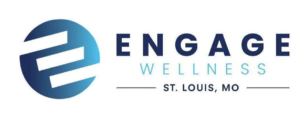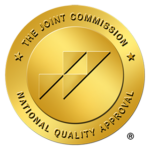What Is Medication-Assisted Treatment?
MAT or medication-assisted treatment is a “whole person” approach to treatment that alleviates physical symptoms of withdrawal, helps reduce cravings, and allows you to focus on treatment to a greater degree. When paired with mental and behavioral health, MAT programs offer physical comfort that supports long-term recovery solutions.
At Engage Wellness, our MAT program near me integrates addiction medicine with mental health to facilitate healing from the inside out. Our medical professionals evaluate each client regularly and make any necessary adjustments to medications as needed. They work closely with our clinicians to ensure medication efforts support therapy interventions and meet the unique needs of each person.

Medication-Assisted Treatment at a Glance
Disclaimer: Offerings and frequency may vary depending on the selected detox program for treatment.
Treatment Modality |
Duration & Frequency |
Conditions Treated |
|---|---|---|
| Medication Management | Weekly sessions or as needed, depending on the prescribed level of care | Substance use Disorder |
| Individual Therapy | Weekly sessions or as needed, depending on the prescribed level of care | Mental Health Conditions |
| Group Therapy | Daily or weekly sessions, depending on the prescribed level of care | Co-Occurring Disorders |
How (and Why) MAT Treatment Near You Works
Medication-assisted treatment, or MAT therapy, prescribes specific FDA-approved medications to reduce euphoric effects of opioids, alcohol, and other substances and alleviate the symptoms of dependence and withdrawal. This evidence-based intervention helps clients achieve sobriety with less discomfort and greater well-being.
There are several different types of medications prescribed that will differ depending on the substance being treated. Medications prescribed for alcohol use disorder may include Vivitrol, acamprosate, disulfiram, and naltrexone, while medications for opioid dependence may include methadone, Buprenorphine (methadone and suboxone), and naltrexone.[1]
Studies show that medication-assisted treatment is the most effective approach to address substance use and alcohol use disorders when it includes both FDA-approved medications and mental health therapy.[2]

Efficacy of Medication-Assisted Treatment
Studies show that MAT treatment is highly effective at addressing several types of alcohol and substance abuse. MAT outcomes include increased participation in treatment, better adherence to treatment recommendations, reduced illicit substance use, fewer risky behaviors, fewer infectious diseases, and more.[3]
FDA-approved medications for MAT treatment block the euphoric effects of substances, and additional research demonstrates that they can reduce the risk of overdose, especially when treating opioid use disorders.[4] When these benefits are administered alongside therapy, clients can create a stable foundation for healing while feeling better and stronger in their recovery.
What Our MAT Program Alumni Are Saying
Engage Wellness Missouri Therapy Modalities to Supplement MAT For Alcohol Use Disorder and Substance Use Disorder
Medication-assisted treatment may be prescribed as part of any level of care and should always be accompanied by therapy to support holistic healing. The type of therapy applied and the frequency of therapy sessions will vary based on the level of care and individualized treatment plans.
In most cases, group therapy sessions occur daily, while individual therapy sessions are held weekly or as needed. These sessions will provide clients with individual support, peer insights, practical coping skills practice, recovery education, and more.
The goal of therapy in medication-assisted treatment for alcohol or substance abuse is to provide practical, hands-on care, treatment, and support to help you maintain sobriety. Therapy is where you will become the best version of yourself by identifying and eliminating harmful patterns and creating new ones.
Therapy interventions accompanied by MAT for alcohol addiction or substance use disorder may include one or more of the following:

Finding Your Place on the Continuum of Care
At Engage Wellness Missouri, we want to meet you where you are and offer you the most helpful services and treatment options. Our continuum of care starts with early recovery and extends into long-term, outpatient sober living support. The level of care you need will be recommended based on your individualized treatment plan, prescribed after an addiction treatment assessment.






